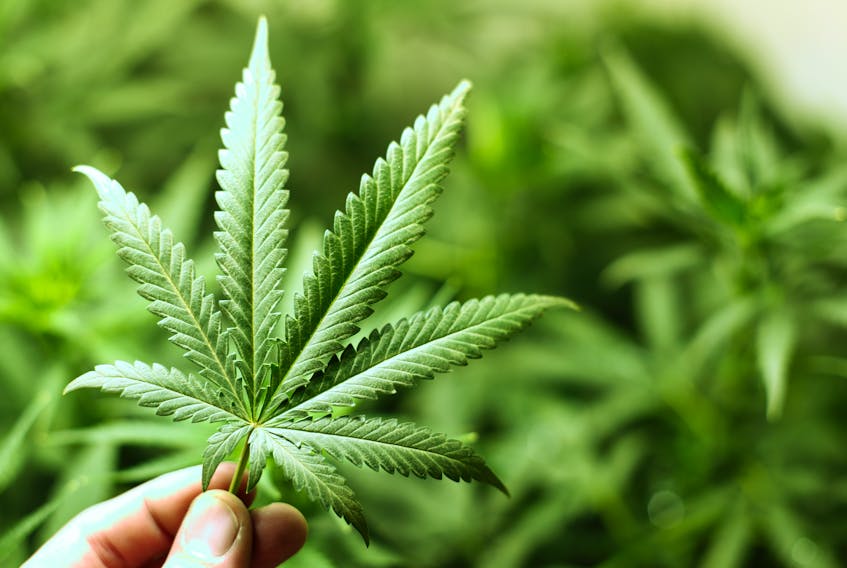ST. ANTHONY, N.L.
It is now the law of the land.
On the evening of Oct. 16 people lined up in St. John’s for up to four hours to become among the first customers to buy legal cannabis in Canada. At 12:01 a.m. this morning three shops in Newfoundland opened for business.
Among the places in the province not included in that historic moment was St. Anthony. There are no legal shops in the town, or anywhere on the Northern Peninsula, for that matter.
St. Anthony Mayor Desmond McDonald said it would be tough for a small town to support a cannabis shop because of the restrictions and profit margins.
“I had heard that there maybe were a couple of different businesses that had applied, but they did not meet the criteria,” he said. “As a businessperson, I look at the numbers in it, I don’t see the volume; I don’t see where it would be profitable for a local business.”
Provincial government
But St. Barbe-L’Anse aux Meadows MHA Christopher Mitchelmore said that could change as the industry evolves.
“There are opportunities as the NLC and as private companies look at wanting to establish a cannabis store in a particular region,” he said.
He noted there are four tiers of retail outlets available under the provincial legislation, standalone stores, a store within an existing store (along the lines of Liquor Express), a countertop operation (like the Canada Post model), and a behind-the-counter covered enterprise (the way tobacco is currently sold in convenience stores).
He believes areas not served, or underserved, will eventually have storefronts.
“Some people may be a little more cautious in the beginning to see how this is going to evolve and will there be an opportunity for me in six months or a year?” he said, adding it was the same way when NLC went from government stores only to offering Liquor Express franchises.
“They started with a small number and now there are many throughout Newfoundland and Labrador.”
“It’s probably not going to be that big a change up here,” McDonald said. “People who smoke marijuana are going to smoke marijuana, wherever they get it.”
Newfoundland and Labrador attorney general Andrew Parsons told The Northern Pen last week, he was very pleased with the position Newfoundland and Labrador is in with 23 storefronts and online sales opening today, which he said is much further ahead than other provinces. Still, he realizes that does not immediately replace the illegal trade.
“I’ve said all along, I’m not silly enough to think that this black market that does exist is going to go away right away, I mean, we still have a black market that exists with alcohol and tobacco, but the fact is there will be legal options,” he said.
While Parsons may not be naïve enough to think people will not continue to obtain pot from existing sources, he warned that there are still penalties.
“People know what the law is, so if they want to choose to continue to avail of the black market, they will face the consequences of doing that,” he said.
Under the new act, it is still a criminal offence to sell cannabis without a licence and possess illegally obtained products. Penalties for distribution range up to 14 years in prison and for illegal possession up to five years.
That is not foremost on the attorney general’s mind, however.
“When it comes to policing, policing is always done at their discretion, I will leave it to police to do that,” he said. “My biggest concern is that if people are driving and they have cannabis, they better not be under the influence when they’re driving.”
That is also McDonald’s biggest concern.
“I would say, the impaired issue is going to come up because how are they going to determine someone is impaired?” he said. “I don’t think the RCMP is anywhere near prepared to handle testing for it.”
Local opinions
On the eve of cannabis legalization, Oct. 16, The Northern Pen polled shoppers at the Viking Mall for their thoughts.
The results, although by no means scientific, suggest area residents are pretty equally divided among in favour, against and indifferent to the change.
Of 44 people interviewed, 14 said legalization was a good thing, 14 thought it was bad and 16 said it was neither good nor bad or didn’t know.
“It seems to be okay because it helps a lot of people,” said Ashley Pollard, a dock worker.
Alexander Hillier, a Grade 11 student at White Hills Academy, disagreed. “I don’t think it’s a good thing because more young people that was scared to try it because it was illegal at the time are going to try it now, they’re not going to be as scared,” he said.
Ena Taylor, a hotel worker from Raleigh, took a more neutral view.
“For me, it really don’t matter one way or the other cause people are gonna get their hands on it anyway,” she said.









